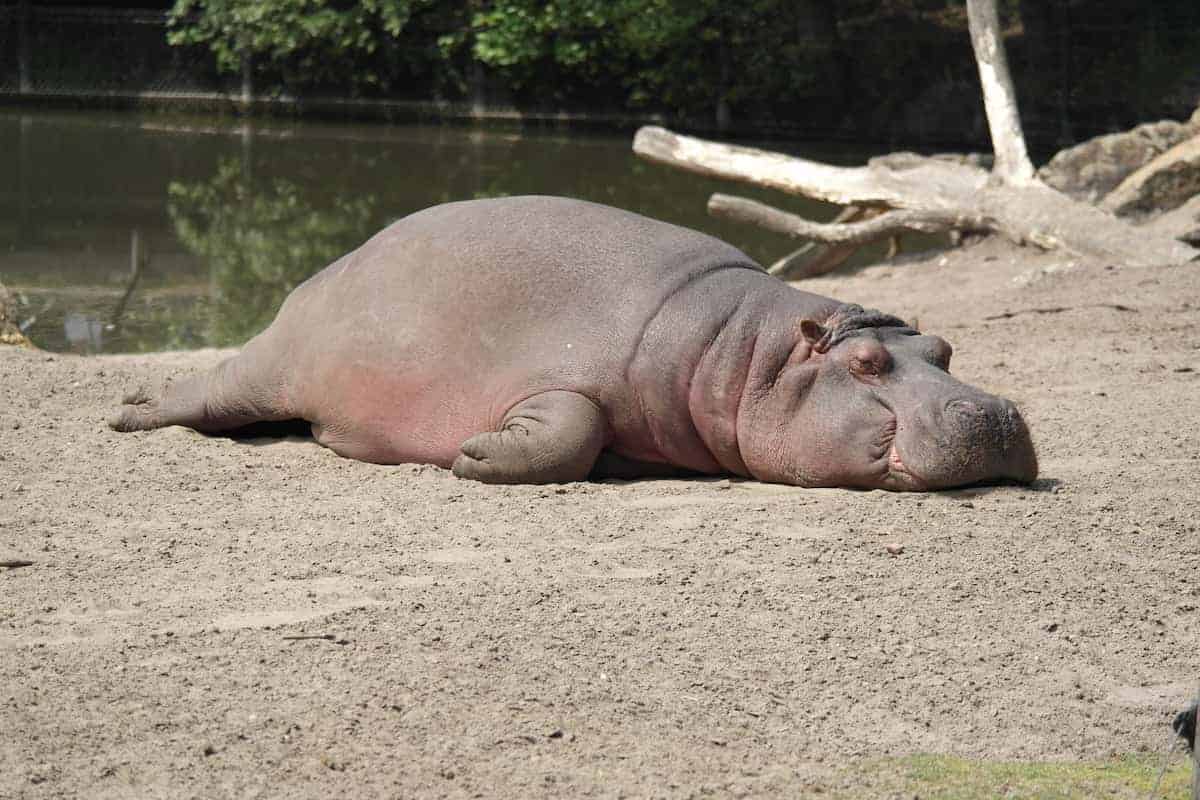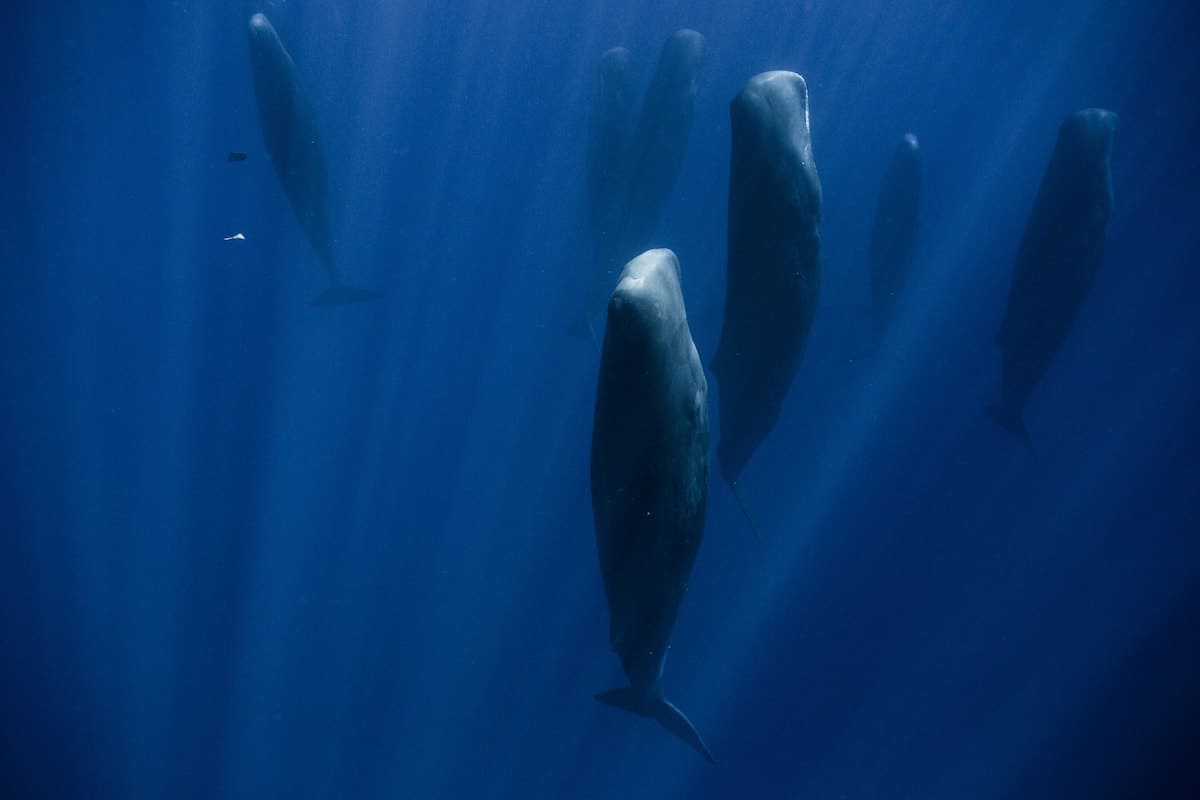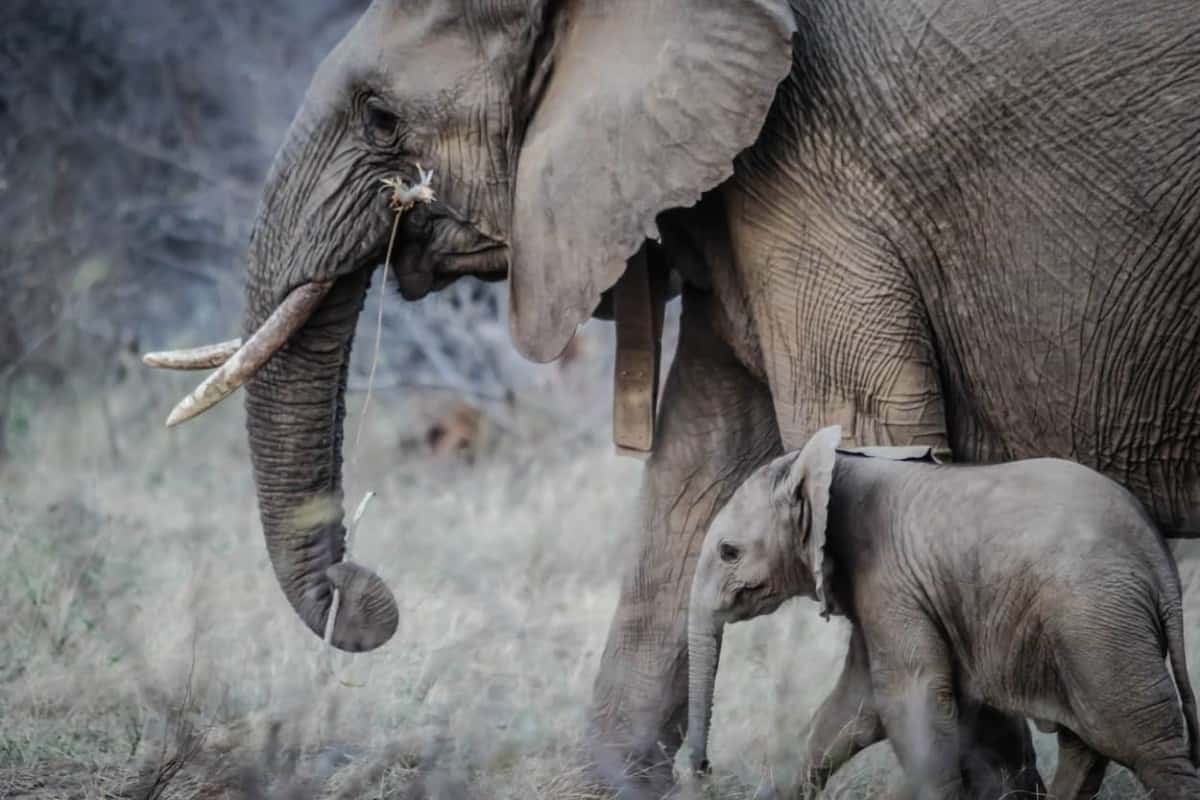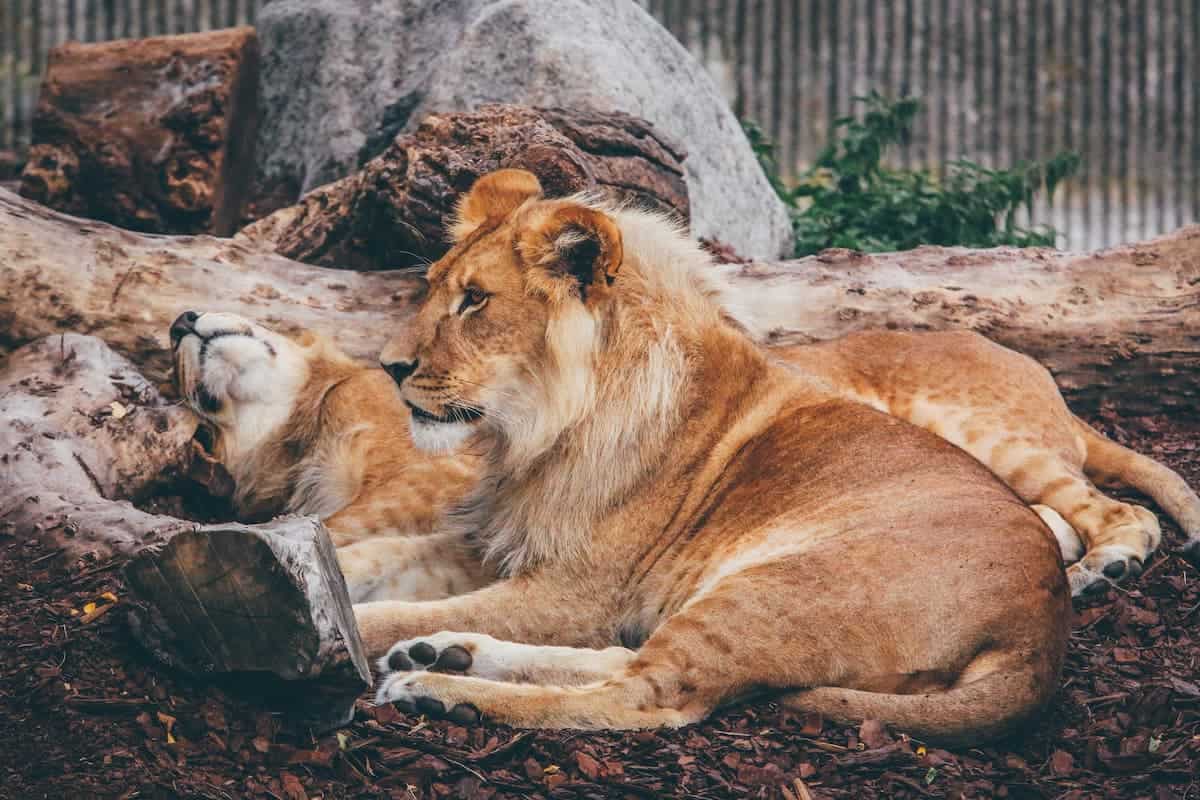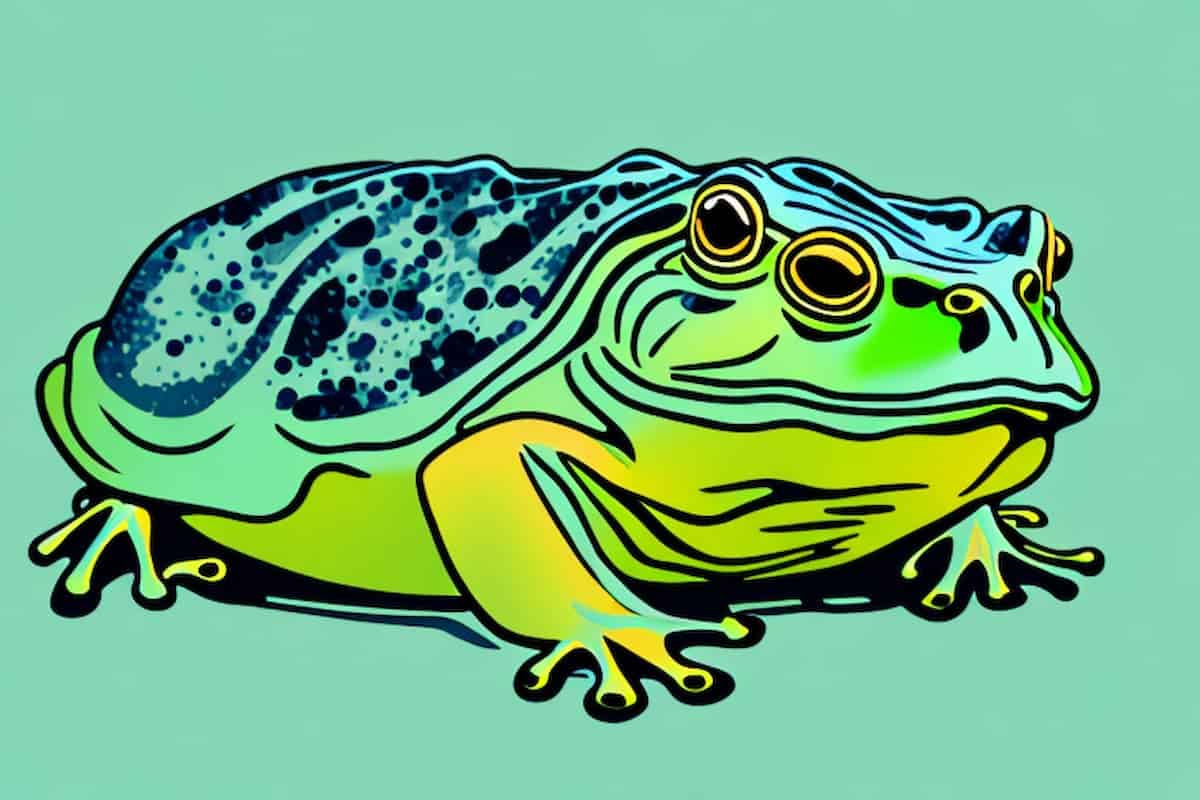Hippopotami spend roughly 16 hours a day in a water body of sorts (rivers, dams/lakes, wetlands, mud holes, etc.), but do hippos sleep underwater? do they beach themselves for a nap? If you have ever wondered about a hippo’s sleeping habits, you might be delighted to know that they sleep underwater.
For an air-breathing mammal, this peculiar feat is one of the reasons scientists believe whales and dolphins are a hippo’s closest relatives. The article below clarifies how, why, where, and when hippos sleep underwater.
How Do Hippos Sleep Underwater?
Hippopotami (Hippopotamus amphibious and Choeropsis liberiensis) are incredible animals that are well-adapted to a semi-aquatic lifestyle (earning them the nickname “river/water horse” from the ancient Greeks).
Hippos are air-breathing animals, meaning they will die if they stay submerged for too long. Hippos hold their breath for 5 minutes. When a hippo sleeps underwater, they will need to surface to breathe (while awake, taking a breath is not an issue).
Hippos adopted a “bobbing” reflex to overcome this breathing “issue.” While the hippo is asleep, it surfaces, takes a breath, and sinks underwater without disturbing its slumber.
A study in 2015 hypothesized that hippos do not sleep like cetaceans (dolphins and whales), with half their brain at a time (i.e., the left side of the brain goes into a state of rest while the right remains active, and then the sides switch).
The researchers believe that hippos have a bi-hemispheric sleep (both sides of the brain go into a state of rest simultaneously), similar to humans. They believe other processes involve novel (previously unknown) features of the cholinergic system (including nuclei).
The cholinergic system controls various brain functions, including:
- Arousal
- Attention
- Sensory processing
- Sleep
Hippos possess an undescribed, unique sleep state because of these adaptations to the system.
Physical Adaptations That Allow Hippos To Sleep Underwater
A hippo’s ears, eyes, and nostrils are on the top of its head. When a hippopotamus submerges most of its body, these openings are usually close to the surface.
As the hippo submerges, skin flaps shut off its nostrils (and ears), and its eyes have a nictitating membrane (a clear third-eyelid) that protects its eyes while submerged.
Hippos have four webbed toes to assist underwater movement (including walking, hopping, and jogging). A hippo moves from submerged to breaking the surface with the top of its head for a quick breath in one quick motion.
Behavioral Adaptations That Allow Hippos To Sleep Underwater
Hippos do not swim. They stand, walk, or lie in areas where their feet touch the bottom of the water body (a hippo’s body is too dense and sinks when it tries to swim). However, hippos can bounce around underwater, and babies can swim.
When hippos sleep underwater, they lie down on their bellies or sides in shallower areas. Hippos also sleep standing up while submerged in deeper water.
Why Do Hippos Sleep Underwater?
A hippo’s physiological and behavioral adaptations allow it to sleep underwater, but what purpose does sleeping underwater serve?
Hippopotami sleep underwater for several reasons, including:
Hippos Sleep Underwater For Thermoregulation
Africa is a hot place, so staying cool is critical for survival. Hippos stay cool in the harsh sun by staying in (and under) water, in rivers, dams, and pans. A hippo’s temperature remains constant while submerged because larger water bodies remain cooler than the hot air outside.
Their skin is also sensitive to sunburns, so avoiding direct sunlight is essential.
Hippos Sleep Underwater To Stay Hydrated
Hippos do not only need water to stay cool. They need water to keep their skin moisturized. If hippos stay out of water for too long (particularly in hot and dry conditions), they risk dehydrating.
Hippos do not have sweat glands. They secrete “blood sweat” (a red mucous) from pores. This mucus moisturizes their skin and prevents infection from wounds.
The mucus remains on a hippo’s skin and hydrates it for longer when a hippo sleeps in the water.
Africa is a dry continent, and many animals evolved methods of saving water. Hippos do not need to drink as much water by not sweating, which is ideal if clean water is limited (hippos often frequent muddy pools).
Hippos Sleep Underwater As A Defense Against Predators
Although hippos are the third-largest land animal (after elephants and white rhinos), there is the risk of predation. Lions and hyenas attempt to catch hippos, particularly juveniles and babies when they (the predators) are in large enough groups. A large lion pride might attempt to catch an adult hippo too.
Hippos reduce the threat by sleeping underwater, as most predators are at a disadvantage in the water.
Although hippos are safe from land-based predators, there are crocodiles to look out for in the water. While a Nile crocodile will not attempt to attack an adult hippo, juveniles and baby hippos are on the menu, provided the crocodile gets past the sleeping adults.
Hippos usually live in herds/schools of up to 100 animals, so a wise crocodile usually avoids the dangers of sleeping hippos.
When And Where Do Hippos Sleep Underwater?
Hippos inhabit various water bodies, from slow-flowing lakes and rivers to pans and mud holes. Hippos spend the greater part of their day in the shallows, and they are not particularly selective of where they sleep, provided they can stand/lie down and are submerged.
The weather conditions and season determine how much of the hippo is submerged while it sleeps. A hippo completely submerges itself on hot days, while hippos might lie partially in the water on cooler winter days.
When Do Hippos Sleep Underwater?
Hippopotami usually leave the safety of rivers and dams at night to graze along river banks. They sleep in the middle of the day to conserve energy and keep cool in the heat.
When hippopotami give birth, mothers stay with their babies in the water for several days before venturing out onto the shore. Baby hippos have a breath capacity of around 40 seconds. The baby nurses underwater from its mom for up to eight months.
When Do Hippos Not Sleep Underwater?
Although hippos spend most of their day in the water, there are several instances where they do not sleep underwater. Hippos also sleep above the water or on dry land.
Hippos enjoy the occasional sunbath. Hippos lie on the bank, sunning themselves during winter, then return to the water to cool off.
When hippos sleep in shallow areas, they do not always fully submerge. Instead, hippos lie with their nostrils above the water and the rest of their body submerged.
Conclusion
Hippos are incredible animals, well-adapted to their semi-aquatic lifestyle. Hippos spend most of their lives in the water and, therefore, developed a method that allows them to sleep underwater. Hippos surface, breathe, and sink again while continuing their sleep due to certain brain adaptations. Hippos sleep underwater to remain hydrated and cool and protect themselves from predators.
